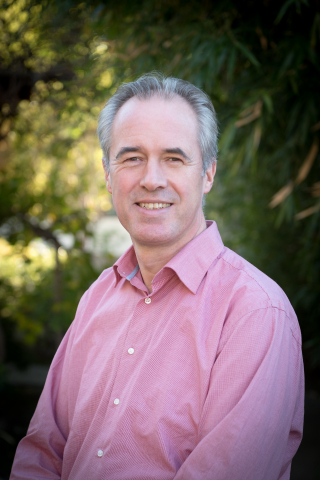DUARTE, Calif.--(BUSINESS WIRE)--Some type 1 diabetes (T1D) patients can be cured from the disease, at least for a number of years, with a stem cell transplant — those were the results of a clinical trial monitored by City of Hope’s Bart Roep, Ph.D., the Chan Soon-Shiong Shapiro Distinguished Chair in Diabetes and professor/founding chair, Department of Diabetes Immunology. The results were published recently in the journal, Frontiers in Immunology.
“This means we can cure type 1 diabetes, be it with a risky therapy — although one that is also very successful in cancer, and one for which City of Hope is a world-renowned expert, with more than 13,000 patients having received similar treatment for blood cancers,” said Roep, director of The Wanek Family Project for Type 1 Diabetes, which aims to find a cure for T1D in six years. “We now understand stem cell transplants can succeed in treating diabetes for some, but not in others, and we can predict either outcome before the therapy is administered by ‘reading’ the immune signature of the patient with a novel nanotechnology that I developed.”
An international team of researchers, including Roep, conducted the trial in Brazil. It showed that autologous hematopoietic stem cell transplantation (AHSCT), which uses a person’s own stem cells, increases C-peptide levels — that show how much insulin is being made by the pancreas — and induces insulin independence in patients with T1D. This is possible because the transplanted stem cells are able to balance the immune system. The study also aimed to understand why some patients saw long-term clinical benefit from the transplantation while others did not.
Twenty-one T1D patients who received AHSCT were monitored and assessed every six months. Most patients became insulin free for an average of 3.5 years after transplantation, and C-peptide levels remained higher than initial values for at least four years post-AHSCT, indicating temporary immunological balance and preservation of insulin-secreting beta cells.
“One patient is free of insulin for more than eight years now, without any major side effects,” Roep said. But he also points out that some participants had little to no benefit. “However, we discovered the immune signature predicting these outcomes — either favorable or not — which is the first step toward personalized medicine in type 1 diabetes. We have a foot in the door.”
Because stem cell transplants involve severe immunosuppression prior to transplantation, the procedure is risky and will unlikely become the first line of defense for T1D, Roep added. However, the lessons learned from this and other trials will inform new paths for potential treatments.
The trial’s findings will aid in the development of new strategies of AHSCT that could lead to even better outcomes for more patients, and will guide future research protocols on immunotherapies for T1D.
“This study paves the way for personalized therapy in type 1 diabetes,” Roep said. “Understanding why it sometimes fails will allow us to design new treatment strategies for those less fortunate patients. Also, it is the first definitive proof that T1D can be cured.”
The work described in the Frontiers in Immunology paper was also supported by the São Paulo Research Foundation. The paper is titled “Immunological Balance is Associated with Clinical Outcome after Autologous Hematopoietic Stem Cell Transplantation in Type 1 Diabetes.”
About City of Hope
City of Hope is an independent research and treatment center for cancer, diabetes and other life-threatening diseases. Designated as one of only 47 comprehensive cancer centers, the highest recognition bestowed by the National Cancer Institute, City of Hope is also a founding member of the National Comprehensive Cancer Network, with research and treatment protocols that advance care throughout the world. City of Hope is located in Duarte, California, just northeast of Los Angeles, with community clinics throughout Southern California. It is ranked as one of "America’s Best Hospitals" in cancer by U.S. News & World Report. Founded in 1913, City of Hope is a pioneer in the fields of bone marrow transplantation, diabetes and numerous breakthrough cancer drugs based on technology developed at the institution. For more information about City of Hope, follow us on Facebook, Twitter, YouTube or Instagram.

